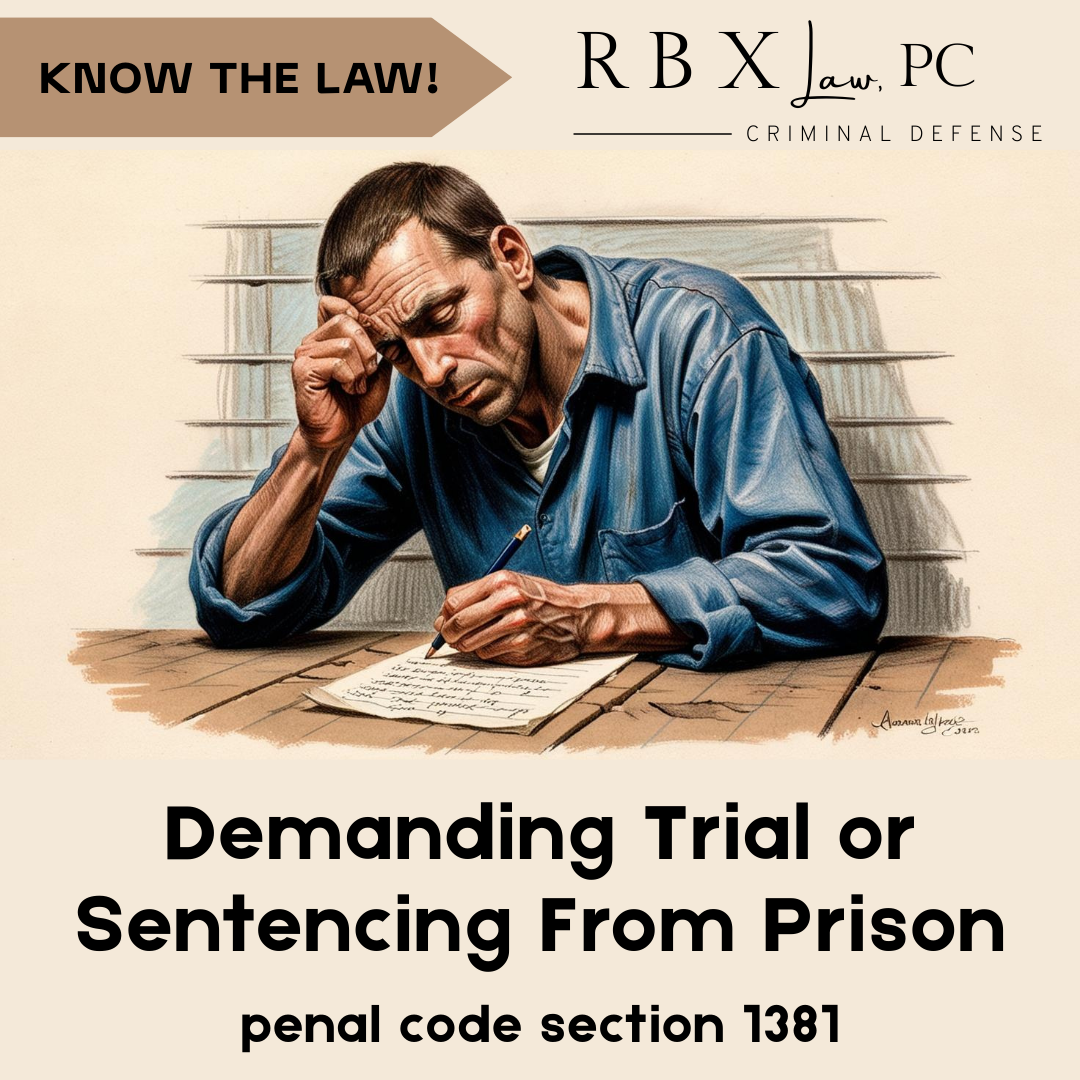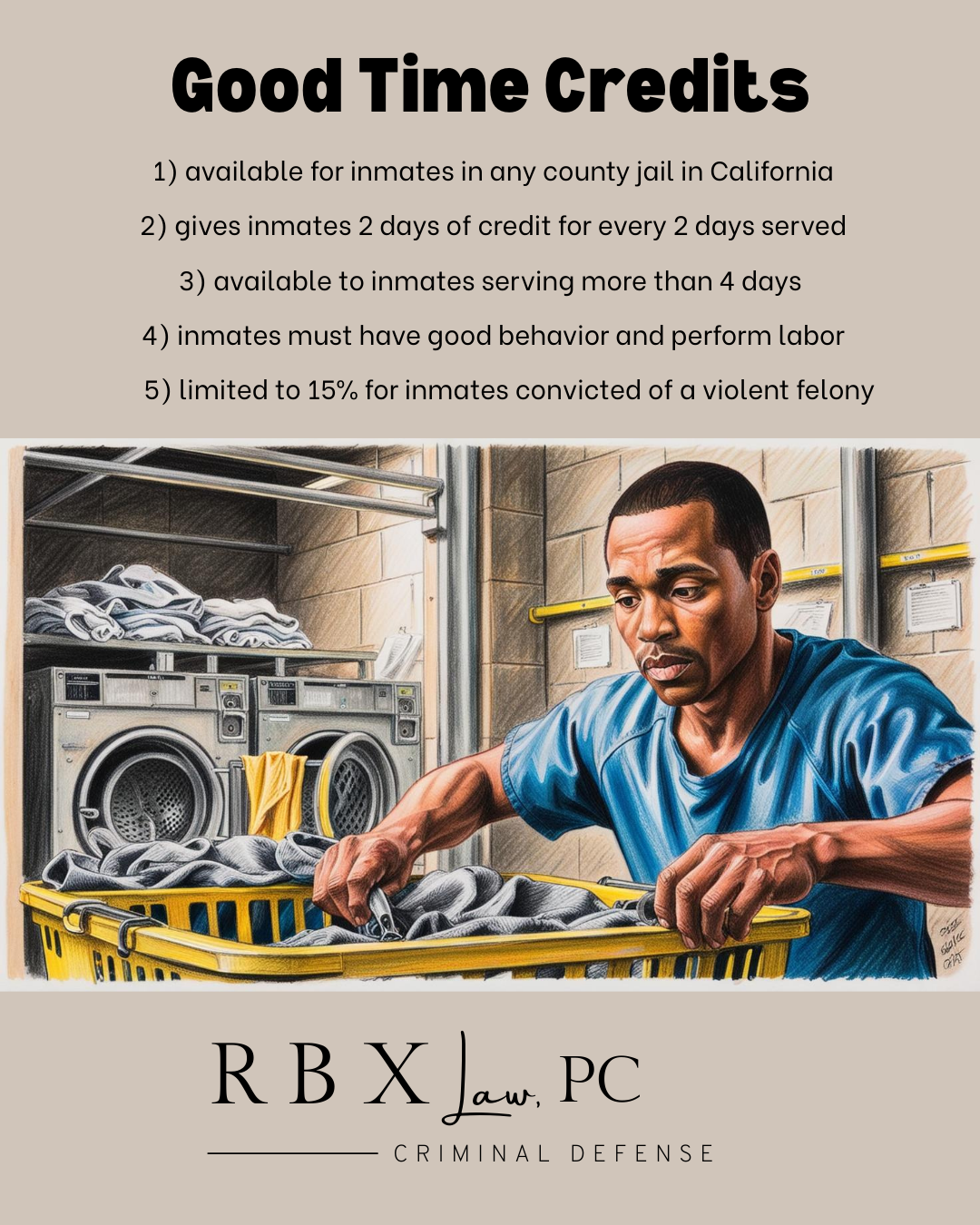Yes. A prisoner can demand trial or sentencing on a pending case.1 To make this request the prisoner. must:
- Contact the district attorney where the charge is pending;
- Tell the district attorney where they are incarcerated;
- Demand to come to court for trial or sentencing.
The prisoner must make this request in writing. In response, the District Attorney obtains an order for the agency holding the prisoner bring them to court. If, however, the District Attorney does not bring the prisoner to court within 90 days, the judge must dismiss the case.
The prisoner can request or agree to a continuance of the 90 day deadline. The court must enter the prisoner’s agreement to continue the deadline into the court’s minutes.
Qualifications for Prisoner to Demand Trial
The prisoner must be serving:
- A sentence of 90 days or more in county jail;
- A term in state prison;
- A term in a Youth Authority institution;
- A state rehabilitation center.
The prisoner must have a pending charge in California.
Charges Filed After Incarceration
A prisoner may demand trial or sentencing on charges filed after the prisoner is incarcerated.
Contact us to discuss a prisoner’s options on pending cases under Penal Code § 1381.








